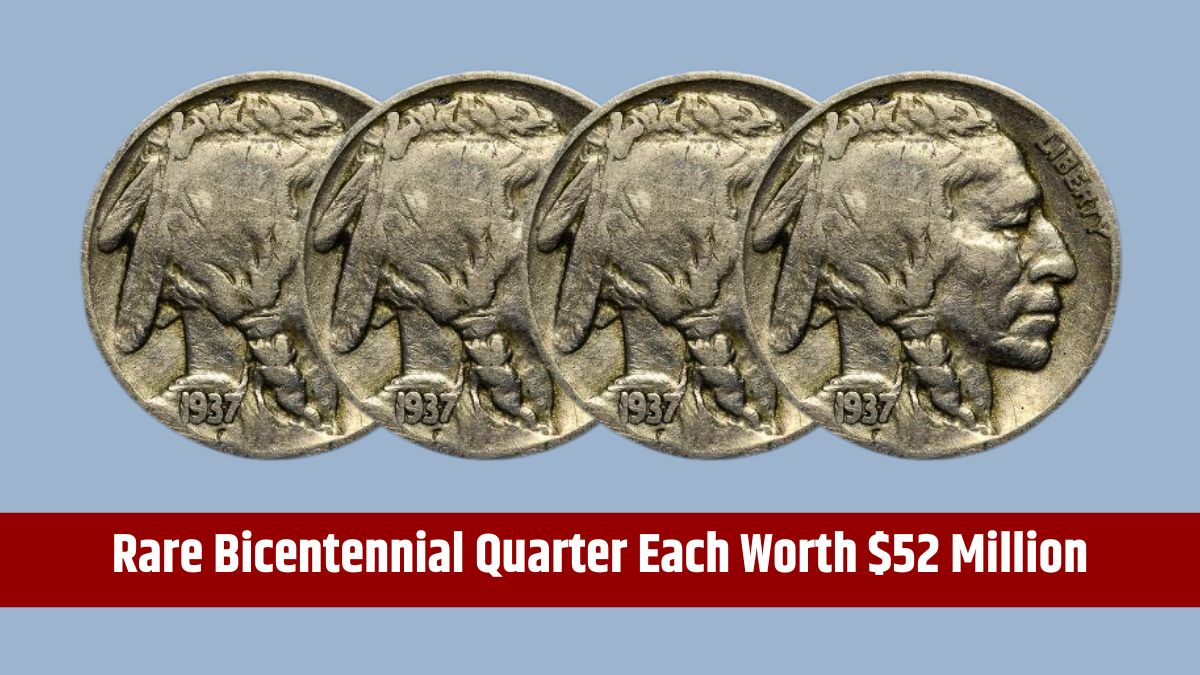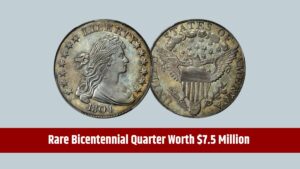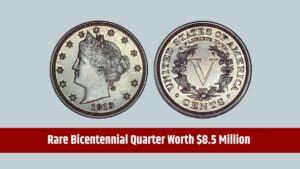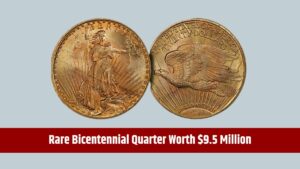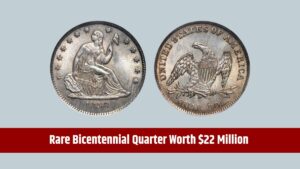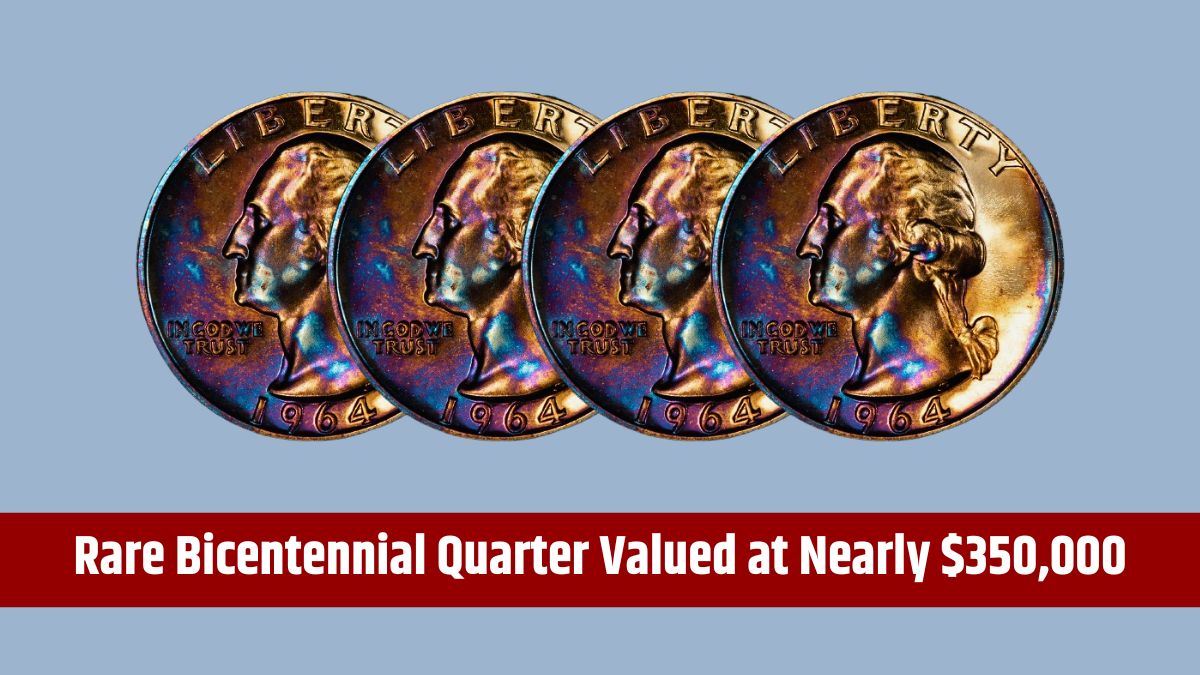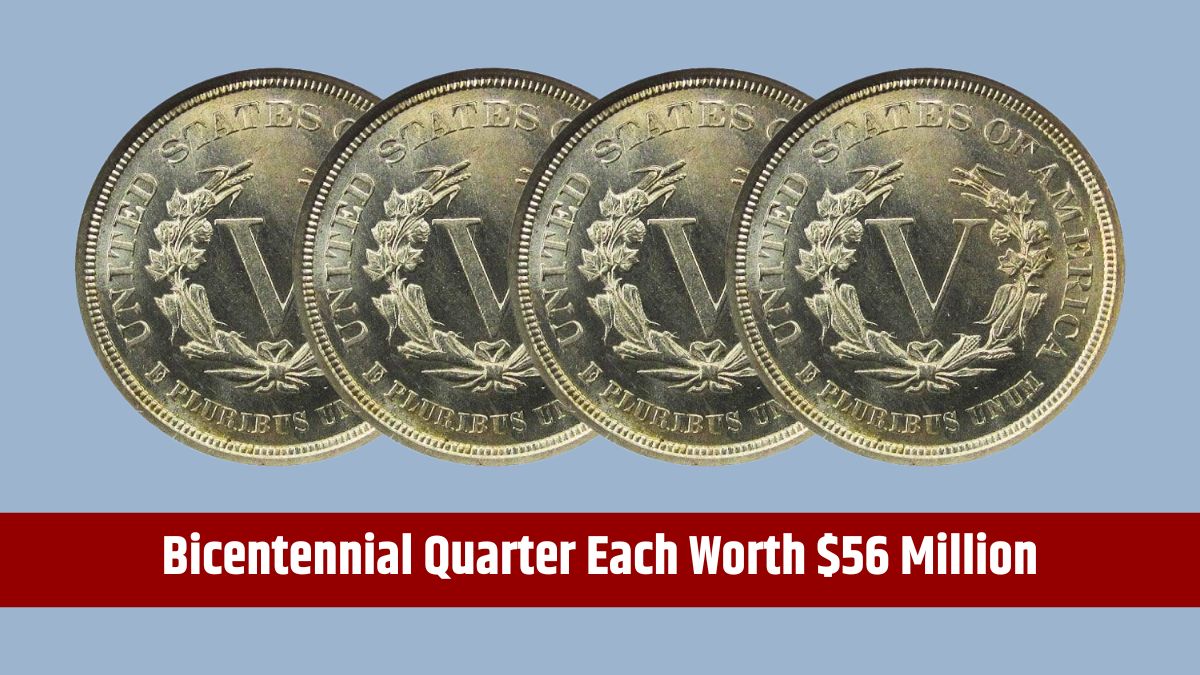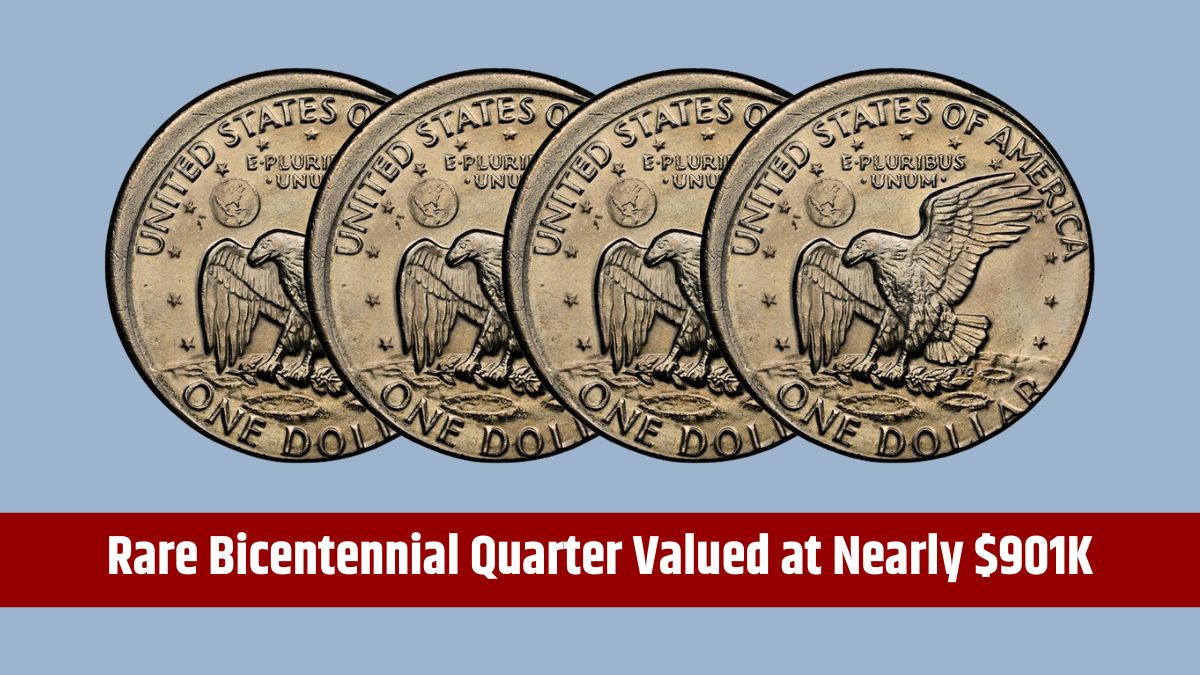Imagine rummaging through your spare change and discovering a coin that could fetch you a staggering 52 million dollars! Sounds like a scene out of a treasure hunt movie, right? But believe it or not, some rare dimes and the elusive Bicentennial quarter are still lurking in circulation, just waiting to be found.
These special coins have captured the imagination of collectors and treasure hunters alike. Today, let’s dive deep into the fascinating world of these rare finds and look into what makes them so valuable.
Contents
- 1 Rare Dimes
- 2 Rare Bicentennial Quarter
- 3 Face Value vs. Real Value
- 4 How to Spot Rare Coins
- 4.1 Rare Bicentennial Quarter Worth Nearly $9.5 Million – 5 More Worth Over $30 Million USD
- 4.2 Look for Minting Errors
- 4.3 Check the Year and Mint Mark
- 4.4 Rare Bicentennial Quarter Worth Nearly $22 Million – 6 More Worth Over $50 Million USD
- 4.5 FAQs
- 4.6 What makes a dime worth millions?
- 4.7 How can I spot a rare coin?
- 4.8 Is the Bicentennial quarter valuable?
- 4.9 Should I clean my coins before selling them?
- 4.10 Where can I learn more about rare coins?
Rare Dimes
Dimes might seem like the most unassuming of coins, but certain ones carry hefty price tags. The most sought-after types often have unique minting errors or historical distinctions that set them apart from the rest.
1937-D “Three Legs” Dime
One of the most famous rare dimes is the 1937-D “Three Legs” dime. At first glance, it appears like any other dime, but a closer inspection reveals a peculiar detail—one of the legs of the bison on the reverse side is mysteriously absent. This minting error, combined with its scarcity, makes this dime a highly prized piece among collectors. In the right hands, it could be worth millions.
1942/1 Mercury Dime
Another prized possession in the world of rare dimes is the 1942/1 Mercury dime. This coin was minted with an overdate error, where the number “1” in the year overlaps with the “2”. This mistake makes the 1942/1 Mercury dime extremely rare and valuable. Collectors often consider this piece the holy grail of Mercury dimes, and it’s one that many dream of adding to their collection.
Rare Bicentennial Quarter
Now let’s shift gears to an iconic coin that many of us encounter regularly—the Bicentennial quarter. These quarters, minted in 1976 to celebrate America’s 200th birthday, feature a unique design. But what many don’t realize is that hidden within the circulation are variations that could potentially be worth a fortune.
Mystery
The Bicentennial quarter is distinguished by its unique design featuring a drummer boy on the reverse side, but it’s the variations and minting errors that make some of these coins exceptionally valuable. Among these, the quarter with the “D” mint mark (indicating it was minted in Denver) is especially rare and highly sought after by collectors. If you happen to come across one with a clean strike and in pristine condition, its value could skyrocket beyond your wildest expectations.
Face Value vs. Real Value
So, what makes these coins so valuable? It’s all about demand and rarity. With most quarters and dimes being mass-produced, finding those with anomalies or errors turns collectors into avid treasure hunters. It’s akin to finding a diamond amidst a handful of pebbles—rare coins like these are the diamonds of the numismatic world.
How to Spot Rare Coins
If you’re now itching to check your pockets or piggy bank, let’s talk about how to spot these rare treasures. Here’s what to look for:
Look for Minting Errors
Minting errors can significantly increase a coin’s value. Keep an eye out for doubled images, missing elements, or unusual textures on the coin’s surface. These inaccuracies can turn a seemingly normal dime or quarter into a collector’s dream.
Check the Year and Mint Mark
Always check the year your coin was minted and its mint mark, which is usually a small letter indicating where it was made. This information is crucial as it helps determine the coin’s value and rarity. But don’t stop there—research your finds and compare them to online catalogs dedicated to rare coins. You never know what treasure you might have stumbled upon.
| Coin Type | Key Features | Potential Value |
|---|---|---|
| 1937-D “Three Legs” Dime | Missing bison leg, mint error | Up to 52 million dollars |
| 1942/1 Mercury Dime | Overdate error, historical | Millions to the right buyer |
| Bicentennial Quarter | Rare mint marks, clean strike | Potentially millions |
Hunting for rare coins like dimes and the Bicentennial quarter can be an exhilarating pastime. With some luck and keen observation, you might hold a fortune in your hands. But beyond the monetary value, the thrill of finding a rare coin lies in the journey of discovery that accompanies it. Who knows? Your next handful of change could contain a piece of history worth millions.
FAQs
What makes a dime worth millions?
Minting errors and historical significance can make certain dimes extremely valuable.
How can I spot a rare coin?
Look for minting errors and check the year and mint mark on the coin.
Is the Bicentennial quarter valuable?
Some Bicentennial quarters, especially with certain mint marks, can be worth a lot.
Should I clean my coins before selling them?
No, cleaning coins can reduce their value. Keep them in their original condition.
Where can I learn more about rare coins?
Check online catalogs and attend coin shows to learn more about rare coins.

